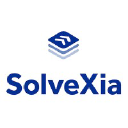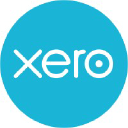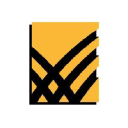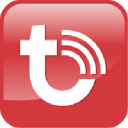5 Best Reconciliation Tools: Complete Guide
1. SolveXia
- Streamlines financial processes
- Reduces manual work and errors
- Offers secure and always-on cloud solution

SolveXia is a powerful finance automation solution that streamlines financial processes, reduces manual work and errors, and offers a secure, always-on cloud solution. With its comprehensive features and intuitive functionality, SolveXia is the ideal tool for optimizing your organization's financial operations.
2. Xero
- Compliant with industry standards such as 21 CFR Part 11
- Offers various functionalities like image upload, electronic consent, and ePRO
- Includes Randomization and Trial Supply Management (RTSM) modules

Xero is a compliant and feature-rich electronic data capture software that offers a flexible pricing model, robust functionalities, and seamless integration. Its user-friendly interface and comprehensive capabilities make it an ideal choice for businesses seeking efficient and accurate data capture and management.
With Xero, businesses can streamline their electronic data capture processes, benefit from advanced reporting and analytics, and ensure compliance with industry standards such as 21 CFR Part 11.
3. Blackline
- Efficient time tracking and invoicing
- Online payment processing
- User-friendly interface

Blackline is a comprehensive billing and invoicing software designed to streamline the billing process for businesses. With efficient time tracking, online payment processing, and user-friendly features, Blackline is the solution for efficient billing management.
Enhance productivity and streamline your billing process with Blackline's robust features and dedicated customer support, making it the top choice for businesses seeking a reliable billing and invoicing solution.
4. Bank Rec
- Streamlines bank reconciliation process
- Automates tedious and time-consuming tasks
- Enhances accuracy and reduces errors

Bank Rec is an advanced bank reconciliation tool that automates and streamlines the reconciliation process, enhancing accuracy and efficiency. With customizable pricing plans and rave reviews from users, it's the go-to solution for businesses of all sizes.
5. ReconArt
- Efficient bank reconciliation process
- Advanced reconciliation features
- Scalable for businesses of all sizes

ReconArt offers advanced bank reconciliation software with a focus on efficient, accurate, and scalable solutions for businesses of all sizes. With its robust features and exceptional customer support, ReconArt streamlines the reconciliation process, ultimately saving time and resources.
FAQ
What are the key features to consider when choosing a reconciliation tool?
When selecting a reconciliation tool, it is essential to consider factors such as automation capabilities, integration with existing systems, accuracy of matching algorithms, reporting and analytics functionalities, and security measures. These features play a crucial role in streamlining the reconciliation process and ensuring accurate financial records.
How can reconciliation tools help in addressing discrepancies in financial data?
Reconciliation tools utilize advanced algorithms to compare and match large volumes of financial data, enabling the identification of discrepancies and errors. By automating this process, businesses can efficiently pinpoint and address discrepancies, leading to improved data accuracy and financial transparency.
What role do reconciliation tools play in enhancing financial decision-making?
Reconciliation tools provide businesses with real-time insights into their financial data, enabling accurate and timely decision-making. By ensuring that financial records are reconciled and up to date, these tools contribute to improved financial analysis and strategic planning.
How do reconciliation tools contribute to regulatory compliance and audit readiness?
Reconciliation tools help organizations maintain compliance with regulatory standards by ensuring the accuracy and integrity of financial data. They also facilitate audit readiness by providing detailed reconciliation reports and documenting the reconciliation process for regulatory review.
What are the benefits of implementing a reconciliation tool for financial operations?
Implementing a reconciliation tool can lead to increased operational efficiency, cost savings through automation, minimization of human error, improved financial visibility, and enhanced decision-making based on accurate data.

FAQ
When selecting a reconciliation tool, it is essential to consider factors such as automation capabilities, integration with existing systems, accuracy of matching algorithms, reporting and analytics functionalities, and security measures. These features play a crucial role in streamlining the reconciliation process and ensuring accurate financial records.
Reconciliation tools utilize advanced algorithms to compare and match large volumes of financial data, enabling the identification of discrepancies and errors. By automating this process, businesses can efficiently pinpoint and address discrepancies, leading to improved data accuracy and financial transparency.
Reconciliation tools provide businesses with real-time insights into their financial data, enabling accurate and timely decision-making. By ensuring that financial records are reconciled and up to date, these tools contribute to improved financial analysis and strategic planning.
Reconciliation tools help organizations maintain compliance with regulatory standards by ensuring the accuracy and integrity of financial data. They also facilitate audit readiness by providing detailed reconciliation reports and documenting the reconciliation process for regulatory review.
Implementing a reconciliation tool can lead to increased operational efficiency, cost savings through automation, minimization of human error, improved financial visibility, and enhanced decision-making based on accurate data.